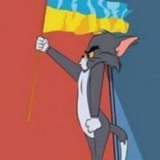group-telegram.com/gistapapapa/109510
Last Update:
Drones as the new snipers: what The Times didn't write about
The Times published a rather interesting article about drones.
However, it did not cover everything.
Here is the article in full:
«Killer drones are changing war — and may soon think for themselves
Ukraine’s destruction of expensive warplanes with simple flying bombs was Russia’s Pearl Harbor moment. The technology is changing faster than you think
Ukraine’s Operation Spider’s Web attack on Russian airbases caused shockwaves among strategists and military planners around the world. Analysts said more than 20 of Moscow’s hugely expensive long-range bombers, which it will struggle to replace quickly, were destroyed by drones developed from hobbyists’ craft supplies at a cost of just a few thousand pounds each.
The audacious strike has been described as Russia’s Pearl Harbor: an unforeseen sucker punch that has revealed deep vulnerabilities.
New technology, innovatively and daringly used, appears to be denying Russia its strategic advantages — from the size of the country, where bases deep in Siberia were assumed to be safe, to a population more than three times the size of Ukraine’s.
This summer’s Russian ground offensive is being met — successfully so far — with a Ukrainian “drone wall”. This year alone, Kyiv plans to produce 3.5 million of these flying bombs, to nullify its opponent’s superior troop numbers.
Military planners from Beijing to Washington will have watched Spider’s Web closely, because it highlights how vulnerable they too might be to the “asymmetries” enabled by drones.
And in London too. Published on Monday, the government’s strategic defence review (SDR) acknowledges the importance of advances in technology, from artificial intelligence to new sensors, and refers to drones 28 times. “Technology is changing how war is fought,” writes the defence secretary, John Healey, at the start of the document. “Drones now kill more people than traditional artillery in the war in Ukraine.”
These battlefield evolutions pose numerous questions for our government, not least whether some of the major defence projects it seeks to fund, at the expense of welfare or the health service, will become obsolete before they enter service. It’s clear, though, talking to military experts in western countries, that they do not see every aspect of what Ukraine has done as transferable.
General Sir Richard Barrons said drones should not be regarded as a ‘magic bullet’ in warfare
“We absolutely must resist the temptation to see drones, however you choose to define them, as a ‘magic bullet’,” General Sir Richard Barrons, one of the SDR’s authors, told me. “If you look at the history of military technology, a magic bullet appears roughly every 15 years. So it was the tank or the aeroplane or the submarine, or it was cyber or whatever. And then what happens is they do well, but then they find a level within the orchestra of war.”
Britain has helped Ukraine in numerous ways with its projects for “uncrewed” weaponry. This caused Andrei Kelin, the Russian ambassador to London, to claim last week that the UK’s provision of targeting data to Kyiv had helped Ukraine mount Operation Spider’s Web, and that this could provoke war.
This specific claim seems unlikely — there are various ways the Ukrainians could have got satellite coverage of these targets — but it is the case that Britain has assisted them in many respects and this year plans to buy 100,000 drones on Ukraine’s behalf. These British projects, building weaponry to specifications agreed with Kyiv, have allowed the Ministry of Defence to learn much about the evolution of these weapons, and indeed the possible pitfalls of such procurements.
👇
BY Фашик Донецький

Share with your friend now:
group-telegram.com/gistapapapa/109510
